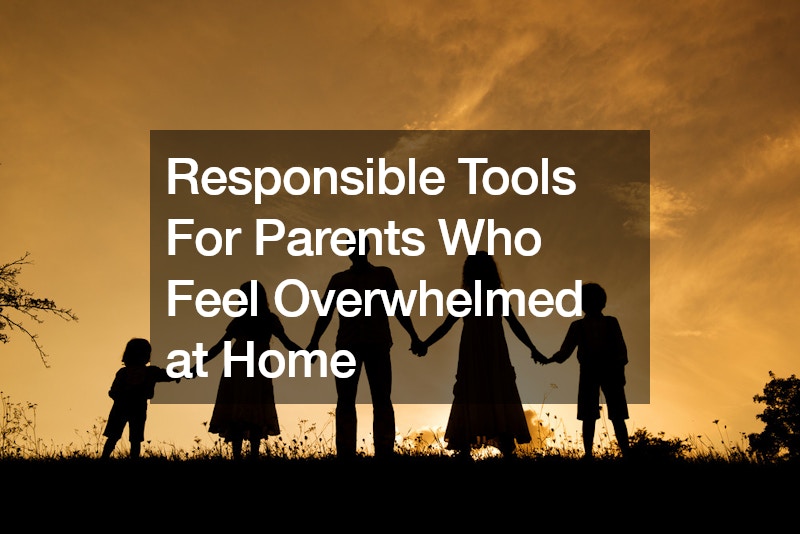

Did you know? Throughout 2018, more than 27 million Americans did not have health insurance at any point, according to the U.S. Census Bureau. While some people may feel that their families are healthy enough not to need insurance, or that insurance is too expensive, it can really help when you need to visit a clinic or hospital.
Families lacking health insurance will probably be less of a problem after the coronavirus outbreak, however. With the events that have rocked the world recently, people are more sensitive to health risks than ever, especially those with families. The political and medical landscapes are shrouded in uncertainty right now, and it’s natural for anyone to feel a little bit anxious. But if you’re a parent, that anxiety could be dialed up to 11. It’s one thing to be worried about yourself, but what about your kids?
If you’re wondering how to keep your family healthy and safe, you’ve come to the right place. In this article, we’ll be discussing helpful tips and important things to remember about how to keep your family healthy. There may not be much you can do to change the world, but you can do a lot to make your family more prepared for whatever comes.
Keep Your Family Healthy
Whether you’re preparing for the cold and flu season or just making sure your family is generally healthy, it’s important to keep your family as germ-free as possible. After all, if one of you catches a cold or flu-like illness, you’re all likely to catch it, which could mean weeks of discomfort and missed work or school. Even if you’ve all been vaccinated against the most common illnesses, there are always other germs and allergens you have to be wary of. Some bacteria reside in uncooked meat, and there’s no telling what nasty germs might be picked up at school, around town, or even around your own yard.
An injury lawyer may help you get compensated after an accident, but there’s no replacement for a good foundation of health.
Keep in mind that this information isn’t supposed to scare you. The goal is simply to learn how to keep your family healthy, and that starts with knowing the risks. You can have a healthy lifestyle and still have fun — water sports like using paddleboards are great for family outings, especially during the summer. Over the rest of this article, we’ll talk about the steps you should take to keep your family safe from sickness and germs.
Get Vaccinated
Your healthcare provider services probably remind you of your children’s vaccination schedules often, but it’s important for you and your partner to be vaccinated as well. You may feel like it’s more important to vaccinate your children, and it’s easy to overlook your own or your partner’s health while you’re taking care of your family, especially if you have a lot on your mind in general. But not only is your own health just as important as your children’s — it’s also important for your children’s health that you and your partner be vaccinated. Some diseases which are mild for adults can be deadly to young children, such as whooping cough. If you or your partner caught whooping cough because you weren’t vaccinated against it, one of your children could be at serious risk. As a first step in how to keep your family healthy, make sure that all of you are getting the vaccines you need on schedule.

Keep All Dentist and Doctor Appointments
Taking precautions to protect your family’s health is important, but it’s just as important to take them to the doctor and dentist on time. Make sure your kids get regular checkups at your family dentistry and pediatric clinics. This way not only will you be avoiding illness in general, but you’ll also find out about it early if anyone gets sick or has a toothache.
Wash Hands Regularly
If you want to know how to keep your family healthy, a good place to start is to encourage effective hand-washing in your children and partner. Seeing as we use our hands for literally everything we do, washing them properly and often is simply the best way to prevent germs from spreading.
According to the Center for Disease Control, proper hand-washing technique involves wetting your hands first with warm or cold water, turning off the tap to apply soap, then lathering the soap between your hands, scrubbing them together for at least 20 seconds. You can help your children keep track of the time by having them sing or hum “Happy Birthday” twice while they rub their hands together. Then you should rinse off your hands thoroughly and dry them with a clean towel.
While it’s not a bad idea to wash your hands regularly throughout the day, regardless of what you’re doing, your children will best remember to do it if you train them to wash their hands before or after specific activities. Obviously, they should wash their hands when they get done using the bathroom. They should also wash their hands whenever they come in from playing outside, before eating, and any time after sneezing, coughing, or petting an animal. You should especially encourage hand-washing during visits from their friends, such as before and after playtime in the toy room, as germs can spread quite effectively across toys.
For times when one of your children needs to wash their hands but there’s no sink nearby, keep some alcohol-based hand sanitizer with you at all times. The hand sanitizer you use should contain at least 60% alcohol, according to the CDC. Although hand sanitizer is a convenient option, keep in mind that it doesn’t work as well on visibly dirty or greasy hands, and it can’t replace regular hand-washing with running water.
Use Tissues Properly and Regularly
Once young children have figured out how to correctly blow their nose, they tend to leave those used tissues lying around wherever they used them. Besides mastering the art of nose-blowing, your children should also be taught to dispose of dirty tissues right away, and then to wash their hands afterward. Certain bacteria and viruses can live for two hours or longer outside the body, so getting rid of used tissues right away can make a big difference in the general health of your home. You can help encourage this healthy habit by ensuring there’s a trash can and hand sanitizer in every room of the house. Also, teach your children to sneeze or cough into their elbows when there aren’t tissues readily available.

Teach Selective Sharing
If you’re like most parents, you’ve probably worked hard to teach your little ones the importance of sharing and taking turns during playdates. However, it’s just as important to teach your children how to keep your family healthy. When it comes to germ-prevention, some things shouldn’t be shared with others. Try to help your children understand that, while it’s okay to let their friends play with their toys, there are certain things they should keep to themselves. These can include:
- Combs and brushes
- Hats (this prevents lice from spreading between children)
- Toothbrushes
- Cups, drinking straws, and utensils
- Whistles, horns, and other objects you put in your mouth
- Tissues and napkins
If your kids are older, they probably wouldn’t share these types of things, anyway, but make sure any younger children know better than this too.
Practice Good Bathroom Etiquette
Your trip to the bathroom might be a quick in-and-out, but germs and bacteria tend to linger long after the toilet flushes. Besides encouraging consistent hand-washing and proper bathroom behavior in your children, it’s important to your family’s health that your bathrooms get cleaned and sterilized regularly.
Wipe down sinks, countertops, toilet seats, tubs, and shower walls with disinfecting cleaners or wipes. Store toothbrushes so they’re kept at least an inch apart from one another so the bristles don’t touch, and replace brushes regularly. You should especially replace everyone’s toothbrushes after an illness passes through your household, as germs can cling to them for long after you’ve recovered from the sickness.
Bath toys require regular cleaning as well, since dirty water can get stuck inside the little crannies and spaces. Wash them in a water and bleach solution about once per week, then rinse them thoroughly. And keep them in a mesh bag or basket when they’re not in use to let them air out fully.
Keep the Kitchen Clean
One of the best tips for how to keep your family healthy is to maintain a clean kitchen. Kitchens can be home to more bacteria than bathrooms, which is often surprising to people. And while a food-borne illness is unpleasant for everybody, for very young children it can be very harmful, as their immune systems aren’t prepared to handle the harmful bacteria. For this reason, you should pay careful attention to food safety in the kitchen.
Remember to wash your hands thoroughly before you prepare any meal. When you’re working with raw meat, poultry, fish, or eggs, this is even more important: you should wash your hands every time you touch one of these items, or any time you touch a utensil contaminated by them. You should also keep at least two cutting boards on hand, so that you have a different board for produce than the one you use for proteins like meat and fish. Try to use cutting boards with smooth surfaces only, so that bacteria doesn’t get caught in cracks or crevices.

On that note, when you prepare meals, make sure all raw meat and dairy products are thoroughly cooked through before serving them.
Finally, maintaining a clean kitchen is possibly even more important than having clean bathrooms — after all, food never enters the bathroom (or at least it shouldn’t!). Carefully wash countertops, the stovetop, and all kitchen tools used after every meal. You should also clean cabinet handles with disinfectant regularly, and don’t forget to wash kitchen towels, dishrags, and sponges frequently.
Watch Out for Allergens
When it comes to how to keep your family healthy, allergens probably isn’t the first thing that comes to mind. That’s not too surprising, considering that they’re usually invisible. But although you can’t see them, things like pet dander, dust mites, mold, and other irritants can have a significant impact on your family’s health and comfort. This is especially the case if there’s any history of asthma or allergies in your family.
You can get rid of dust mites by vacuuming your home at least once every week. You might want to consider purchasing a vacuum cleaner with a built-in HEPA (high-efficiency particulate arresting) filter, which effectively traps dust mites and other allergens.
Sheets and pillowcases should be changed regularly, and then washed in warm or hot water. You should also occasionally wash stuffed animals, as they can be hiding places for dust mites. An overnight stay in the freezer can also help kill any mites or bacteria residing in stuffed toys.
Finally, pay attention to your little ones to see if they seem to develop any allergies. If one of them seems allergic to your dog or cat, make it part of your pet care routine to keep them in different rooms (and definitely in different beds) away from the pet.
Watch Out for Pests
Pests like termites and mice can not only make life in your own home uncomfortable, but they can also contribute to poorer health. If you’ve been putting off calling rodent control services, or if you’ve been suspecting the presence of bedbugs for a while, you should get those things taken care of now to protect your family’s wellbeing.
Pests outside the house can cause significant trouble, too. If you notice more stinging insects in your yard than what would seem normal, you may need to consult a wasp or bee extermination service.
Take Special Care of the Playroom
Your kids might be tight-fisted when it comes to their toys, but they’re generous about sharing germs, which can get passed around a playroom quickly. To avoid having harmful bacteria circulate your children’s toy room, make sure everyone stops to wash their hands before going in to play with their toys. You may have trouble keeping an eye on everybody unless you do remote work from home, but you can at least make it a priority while you’re around.

Once again, disinfectant wipes play an important role here in how to keep your family healthy: keep some near the playroom and make it a regular practice to wipe down hot spots for bacteria.
These include walls, shelves, drawer handles, closet knobs, and toy chests, to name a few. Any place your children can reach with their hands should be wiped down at least a couple of times per month. These precautions are especially important if you regularly have visiting children, as they’ll be bringing their germs with them to add to your family’s.
From good nutrition to dental care services, there are lots of ideas out there for how to keep your family healthy, but these should be enough to get you started and keep you busy. Remember to keep healthy living fun and stress-free, and your family will thank you for taking such good care of them.


